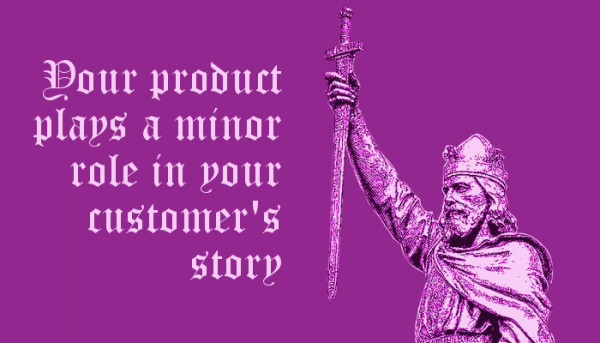Last week we discussed Why Marketers Make Bad Storytellers. This week we’ll dogpile onto the topic by explaining their most common mistake.
Life is one big story in which we all play roles. It consists of mini-stories that intersect. I am the protagonist of my mini-story and you are the protagonist of yours. Periodically, our stories cross paths, such as in this blog post where I’m playing the role of the author and you’re playing the role of the reader. Marketers get into trouble when they mistakenly assume that their product is the hero of our lives.
The StoryHow™ method teaches that stories consist of three elements: roles, events, and influences. Roles are divided into two categories:
- major characters such as protagonists and antagonists
- minor characters like the best friend, settings or props
Business storytellers understand that their products play minor roles in their customers’ mini-stories.
“But, wait, Ron,” is a typical response to this tidbit. “You want me to tell my upper management that our product is a minor character? There’s nothing minor about it. It’s all we focus on.”
The difference between a marketer and a business storyteller is that the latter understands that assigning a minor role has nothing to do with describing its impact on the story. Minor characters shape both the events and influences that drive stories forward. Without minor characters, heroes can’t accomplish their goals.
Take the story of King Arthur, for example. The king is the undisputed hero of the story. Excalibur, on the other hand, is a minor character. At first glance, one might mistakenly assume that it’s a meaningless prop that the king carries around with him. But, Excalibur is more than that. King Arthur cannot rule Camelot without it.
When creating business stories, remember that your product is Excalibur rather than the king. Once you adopt this concept, you’ll never be able to write the same copy again.
